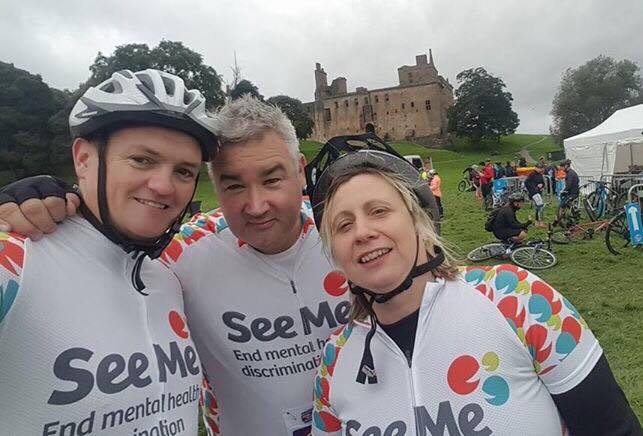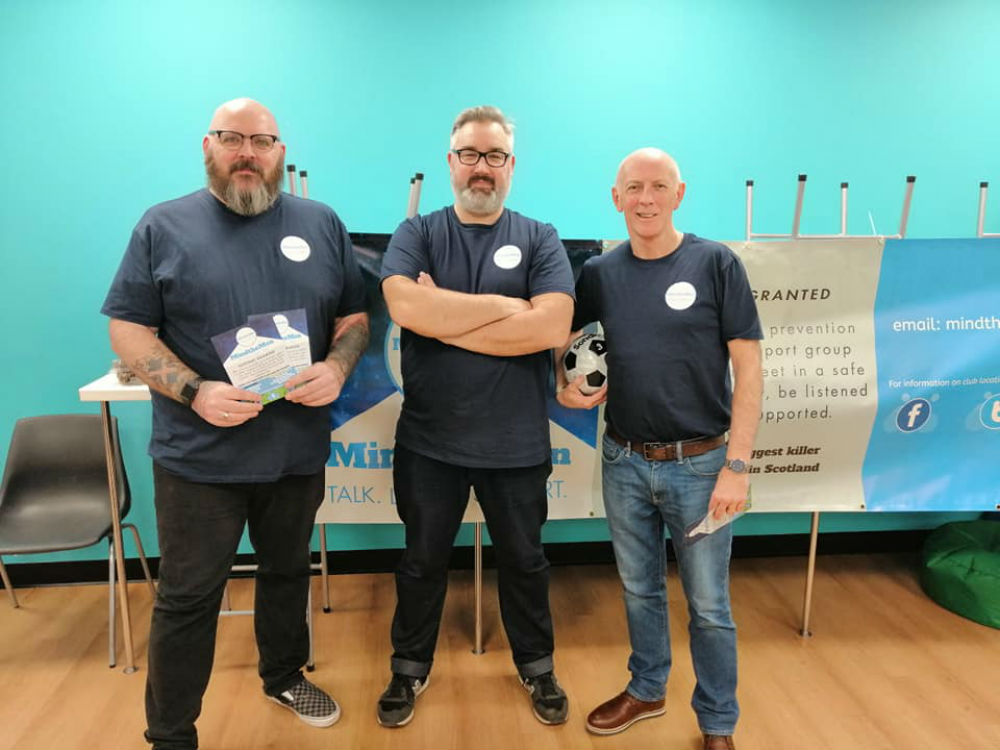A SURVEY of Scots for World Mental Health Day today reveals just under a quarter (24 per cent) don’t feel comfortable talking about mental health at work.
Mental health programme See Me have called on employers to create cultures where workers feel confident to speak about how they’re feeling.
Their survey of 2005 adults in Scotland, carried out by Censuswide for See Me, also found that over one in ten (11 per cent) would not recommend someone for a job if they had a mental health problem and less than half (48 per cent) think that talking dismissively about mental health problems at work is definitely discriminatory.
See Me have said that changing these attitudes and behaviours is vital to ensure people are not treated unfairly at work, and can reach out for help if they’re struggling. Talking about mental health at work has been highlighted by the World Health Organisation as an important action for suicide prevention, which is their theme for World Mental Health Day.

Six employers who are leading the way in making a positive difference are Scotrail, Police Scotland North Division, Glasgow City Council, Bernardo’s Scotland, solicitors Burness Paull and energy support providers EnerMech.
They have all signed up to See Me’s workplace programme, to tackle mental health discrimination and improve mental health support in their organisations.
They are undertaking a four step programme to make continuous improvement to their culture, practice and policies, to benefit the 34,000 employees the organisations have in total.
They will join employers like the DWP in Glasgow, who signed up after one of their managers, Gary Macdonald, wanted to show that mental health problems can affect anyone. Mr Macdonald, who is a health and wellbeing manager for DWP in Glasgow, volunteered with See Me after struggling with his own mental health, and wanted to make a difference in his workplace.
He has also gone on to start his own men’s peer support group, to prevent suicides in Glasgow, and think’s that being able to speak freely at work is key.
He said: “From my experience I know it can be hard to talk in work, it’s not always easy to know who to open up to. Work can also be competitive and you don’t want people to think you’re not coping.

“It all starts with eradicating the stigma. People think they can’t mention suicide, that it’s a terrifying thing to mention. But breaking down the stigma and encouraging people to talk, in a helpful, caring and supportive way, can make a difference.”
Martin Crewe is director of Barnardo’s Scotland, said: “The work that Barnardo’s Scotland undertakes with children, young people and families can be emotionally draining. It is absolutely vital therefore that our staff feel confident that they are working in an emotionally healthy workplace where mental health is talked about openly.
“With the assistance of See Me we are engaging with our staff across Scotland to try and make all aspects of working at Barnardo’s Scotland as positive as possible.”
Derek Cummings, director of Business Services at Burness Paull, said: “The health and wellbeing of everyone in the firm is vitally important, personally and professionally.
“Working with See Me has given us the confidence to talk more openly about mental health and helped us improve the support we provide to those that need it. We wouldn’t have got to where we are without the support and guidance of See Me.
Wendy Halliday, See Me director, said: “These stats show that not enough people feel comfortable talking about mental health at work, which can lead to people feeling like they have nowhere to go if they’re struggling.
“It’s important that in all areas of our lives we are able to say we’re not okay, especially in work. We’re delighted to see these major employers sign up, and take action today, to show that mental health discrimination cannot continue and create supportive cultures where people can ask for help.

